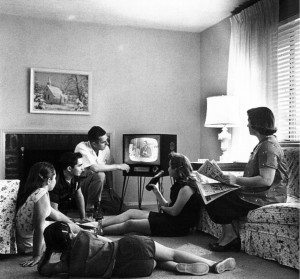TV licensing law and you
[dropcap]D[/dropcap]o I take a TV to uni? It’s one of the biggest questions that new students face, comparable to worries about sharing bathrooms (which, trust me, really isn’t that bad). There is always the seemingly complex area of TV licensing law to consider, and where you stand as a student.
The good news: it isn’t as complicated as it seems.
Whether you need a TV licence all depends on how much live TV you plan on watching. If you want to watch live TV or to record programmes as they’re being shown, then you will legally be required to pay for a TV licence. This is true regardless of whether or not you’re watching BBC programmes – whilst the BBC is responsible for issuing and collecting fees, the licence is needed for reception of live broadcasts from any channel.
If you are only going to watch TV after it has first been broadcast, on catch-up services such as iPlayer and All4, then you don’t need a licence. It’s that simple!
However, it is not just TV sets that need a licence. You will still need to pay the fee to receive live TV on your laptop, tablet, phone, or any other device.
A TV licence costs £145.50 for the year: you can either pay this upfront, or in instalments throughout the year
Moreover, when living in halls, each person must buy their own license: you cannot share with your flatmates.
Although there aren’t any student deals specifically for TV licences, after you’ve moved out of halls in the summer, you can apply for a refund for the remainder of your coverage. As long as the licence would still be valid for three months after you leave, you will be eligible.

If you’re living in a house, you can share a license with your housemates. Photo: Evert F. Baumgardner and Wikimedia Commons
When you move into a new property in second year, you will need to let the TV licensing authority know, so that you’re still covered. Once you’ve moved into a house, you will only need one licence between all your housemates, as long as you have a joint tenancy agreement (where everyone in the house has signed the same contract).
There are also many alternatives to getting a TV licence.
The first option is watching TV on catch-up services, which I’m sure we all do anyway. Being a student means that on-demand services are often actually more convenient to fit into your schedule! This said, current debates about the future of TV licensing suggest that a licence may be required even to view catch-up services in the not-too-distant future.
Another cheaper option is to subscribe to services like Netflix or Amazon Prime, which cost £5.99 a month; you’ll probably get more for your money with something like this.
Unless you’re desperate to watch live TV, I’d recommend using catch-up to keep up with your favourite shows
TV viewing habits have changed so much recently that watching live TV is no longer necessary, and really is an extra expense that you can easily avoid.


Comments